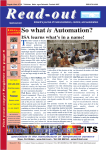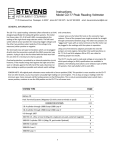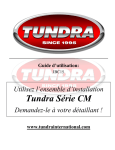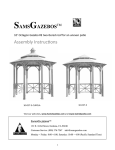Download Geimhreadh 2009 - Cumann Gaeilge na hAstráile
Transcript
An Fhuinneog Ghaelach Cumann Gaeilge na hAstráile Geimhreadh 2009 1-06-2009 San Eagrán Seo.. Cuairteoirí go Melbourne I mí Márta bhí Éamon Ó Cuiv, Aire Gnóthaí Pobail, Tuaithe agus Gaeltachta ar cuairt ar an Astráil. I dteannta an tAmbasadóir, Máirtín Ó Fainín, tháinig sé agus a bhean chéile go dtí Club na gCeilteach, mar a bhuail sé le baill d’eagraíochta Éireannacha. Bhí a lán Gaeilgeoirí i láthair chun labhairt leis i nGaeilge. Dúirt sé go raibh ionadh air go raibh an oiread sin Gaeilgeoirí san Astráil. Rinne sé tagairt don mhaoiniú atá á thabhairt ag Rialtas na hÉireann d’Ollscoil Sydney le haghaidh múineadh na Gaeilge ansin. Chomh maith thug sé bronntanais –litreacha agus líníochtaí- leis ó scoileanna lánGaeilge i nGaillimh do pháistí a d’fhulaing an loscadh sléibhe i Victoria i mí Feabhra. Cuairteoirí go Melbourne Roimh imeacht, thug an tAire agus an tAmbasadóir cuairt ar leabharlann agus oifig an Chumainn thíos staighre sa Chlub agus bhí seans ag Éamon Ó Neachtain agallamh a chur ar Éamon Ó Cuiv i gcomhair an chláir raidió Glór na nGael. Logainmneacha 2 Ba mhór an sochar don ard rang i rith an téarma seo go raibh roinnt taistealaithe linn ar feadh tamaill – Wendy, Sara agus Anna – agus Gaeilge bhreá líofa acu. Cuireann cailín Éirean- 1 Táimid ar Face- 2 book ! nach eile, Ailbhe, go mór leis an gcomhrá agus beidh sí linn ar feadh tréimhse fada, mar aon le Ciara atá díreach tar éis tosnú. Taistealaí eile a bhíonn i láthair ná Jim, gur mhian leis feabhas a chur ar a chuid Gaeilge. Bíonn fáilte ar leith roimh na daoine óga as Éirinn a thagann chugainn. Imeachtaí sa Chumann 3 SMS as Gaeilge 4 AGM ag teacht ! 5 Agallamh na míosa 6-7 Key Dates for June - July 2009 23rd June Last class of term 2 30th June Holiday 7th July Holiday 14th July Teacher meeting 21st July First class of term 3 22nd July AGM (date to be confirmed) Information given here about term dates is for students in Victoria only and Interstate students should check with their local teacher. www.gaeilgesanastrail.com Irish Language classes each Tuesday during school terms 7:30 pm in the Celtic Club Melbourne An Fhuinneog Ghaelach Leathanach 2 Táimid ar Facebook ! Le Karolyne Paron A nois, a chairde, táimid ar Facebook. Suíomh sóisialta atá ann.Tá sé saor in aisce agus ar oscailt do chách. Is féidir leat comhrá le daoine, grianghraif a chur ar do leathanach, daoine éagsúla a chuardach agus go leor imeachtaí eile a dhéanamh ann. Má tá leathanach Facebook agat cheana féin,is féidir leat a bheith mar chara ag an gCumann. Cuardaigh Cumann Gaeilge na hÁstráile agus beidh tú in ann imeachtaí a chomhroinnt linn, grianghraif a chur ar an leathanach nó fógraí a chur ann nuair a bheidh tú mar chara. Ach, abair nach bhfuil tuairim agat cad is Facebook ann ? Bhuel, a chairde, is féidir liom cabhair a thabhairt duit. Ar dtús, caithfidh seoladh ríomhphoist a bheith agat. Téigh go dtí www.facebook.com agus cláraigh isteach ag úsáid do sheoladh ríomhphoist -- beidh ort focal faire a chur ann -- smaoinigh ar cheann duit féin. Beidh ort eolas fút féin a chur isteach agus ansin beidh do leathanach féin agat! Is féidir leat cuireadh a thabhairt do dhaoine a bheith mar do chairde má tá leathanach acu. Is féidir leat a bheith mar leantóir do ghrúpaí nó dhaoine cháiliúla nó fiú amháin do bhannaí ceoil. Mar a deirtear, cabhraíonn Facebook leat ceangail agus roinnt leis na daoine i do shaol. Más mian leat, is féidir do chuid Facebook a chur i nGaeilge chomh maith! Téigh go dtí an rogha “settings” agus cliceáil ar “language”. Ansin, beidh do rogha ann, agus cliceáil ar “Gaeilge”. Éasca go leor agus beidh tú in ann do chuid Ghaeilge a chleachtadh níos minice freisin. www.placenames.ie A ilbhe Nic Daid, now attending our weekly classes, worked for Coiste Logainmneacha Chorcaí/Chiarraí before setting off on her travels. Here she tells us some of the history behind the names. Tá siúlóid álainn i gcathair Chorcaí darb ainm “Lovers’ Walk”. Is féidir siúl a thógaint faoi na crainn ag féachaint theas ar an Laoi agus ar Dhroichead Phádraig, an nasc idir tuaisceart agus deisceart na cathrach. Bóithrín gnóthach is ea é, a mbíonn plódaithe, go háirithe tráthnóna an Domhnaigh, le leannáin óga agus aosta ag spaisteoireacht le chéile. An t-ainm Ghaeilge a tugtar ar an áit ná “Siúl na Lobhar”. As Béarla, “Lepers’ Walk”. Níl sé sin ró-rómánsúil! Do bhíodh oispidéal thuas i nGleann Mhaighir, agus b’é an bóithrín sin a thógadh na lobhair bochta ar a slí go dtí an long a bhíodh ag fanacht sa chuan, chun dul ar oilithreacht sa Spáinn nó sa Róimh. Le himeacht na blianta, athraíodh an t-ainm agus de bharr na fuaimeanna, tháinig Lovers as Lobhar! Áitainmneacha agus na hathruithe a thagann orthu - sin an rud atá faoi cheist ag an gCoiste Logainmneacha Chorcaí/Chiarraí. S’é aidhm an Choiste ná an bun-mhíniú a bhaint amach as logainmneacha. Déanann siad sár-iarracht an dinnseanchas a mbaineadh leis na háiteanna a bhailiú agus a chothú. Bailíonn siad eolas ó acmhainn éagsula – is suirbhé a dheineadh i 1308 faoi Bhanríon Elizabeth an foinse is sine atá le fáil go hoifigúil. Foinse eile atá an-thábhachtach don tionscnamh ná Cartlann Roinn Béaloideas na hÉireann, ó 1938. Chuaigh an Roinn chun cainte le daoine áitiúla timpeall na tíre ag iarraidh eolais a bhaint amach faoin Ghórta Mór. An béaloideas agus dinnseanchas atá bailithe sna ráiteas san, ní féidir luach a chur orthu. Téann an Coiste tríd an chartlainn agus roghnaíonn siad eolas agus scéalta ábhartha. Slí amháin eile a fhaigheann an Coiste eolas chomh-aimseartha ná trí léarscáileanna áitiúla a sheolann siad chuig scoileanna agus grupaí réigiúnacha. Líonann siadsan na léarscáileanna le aon eolais atá acu. Cuireann an Coiste an t-eolas go léir le chéile i sraith imleabhair a mbaineann le gach aon pharóiste, baile féarthainne agus baile mór i gContae Chorcaí agus Chiarraí. Is é Eamon Lankford stiúrthóir an tionscnaimh agus ag deireadh na míosa bronnfar an chéad bhailiúcháin eile do Leabharlann Náisiúnta na hÉireann. Nach maith an rud é go bhfuil dúchas agus stair na ndaoine faoi mheas agus faoi chosaint faoi dheireadh. Go n-éirí leis an gCoiste le gach tionscnamh atá i ndán dóibh – obair luachmhar, riachtanach is ea í. ******* Geimhreadh 2009 Leathanach 3 Imeachtaí sa Chumann Aifreann as Gaeilge B hí Aifreann as Gaeilge in eaglais Naomh Eoin, Clifton Hill ar an gcéad Domhach de mhí an Mhárta. B’é Éamon Ó Neachtain a d’eagraigh é agus chan cór an Chumainn na hiomainn. Ár mbuíochas do Nóirín Uí Chatháin a threoraigh an cór. Eabhrach nuair a bhí sé ceithre bliana déag d’aois, ar a chuid fhuirseoireacht agus go háirithe ar an bhliain a chaith sé i gConnamara ag foghlaim Gaeilge. OAM In this year’s Queen’s Birthday list Dr Val Noone was honoured for service to education as an academic and historical researcher, and to the community. Ba mhaith linn comhgairdeas a dhéanamh le Val faoin onóir seo Maith an fear ! Ar oíche Dé Mháirt, 10 Márta, in ionad na gnáth ranganna, bhí oíche sóisialta againn. Chuir gach rang mír i láthair agus tar éis bia agus deoch a chaitheamh cuireadh ceann de chláracha In the name of the Fada le Des Bishop ar siúl. Bhain gach duine sult as an oíche. Make a note in your diary for our AGM full details on page 5 Glór na nGael Beidh Gearóid agus Seán ag imeacht go dtí an Gaeltacht i mí Lúnasa Go n-éirí an bóthar libh ! Le linn an Comedy Festival i Melbourne le déanaí thapaigh tríocha duine ón gCumann an deis chun freastal ar léiriú Des Bishop agus i ndiaidh an seó bhí seans againn labhairt leis – as Gaeilge ar ndóigh – mar tá Gaeilge líofa aige. Más mian leat tuilleadh eolais a fháil ar an bhfuirseoir seo téigh go dtí a shuíomh idirlín. Níos déanaí labhair Muiris Ó Scanláin agus Siún Uí Mhaoldomhnaigh le Des Bishop i stiúidio 3ZZZ le haghaidh an chláir Glór na nGael. Thug sé cur síos ar a shaol ó cuireadh ar scoil in Éirinn é ó Nua Turas go h-Éirinn 2010 Scheduled for August 2010. Beidh eolas ag Deirdre i gceann tamaill Leathanach 4 An Fhuinneog Ghaelach Free software means you can now send sms as Gaeilge I s féidir Téacs a shuiteáil ar fhormhór mór na nguthán póca atá ar an margadh, agus ní chuirfidh sé isteach ar aon mhodhanna iontrála téacs atá ar do ghuthán cheana. 1. Téigh go dtí http://wap.teacs.ie/ ar bhrabhsálaí WAP nó gréasáin do ghutháin. 2. Lean na treoracha a thiocfaidh aníos. Tá Téacs féin á chur ar fáil saor in aisce, ach féadfaidh go ngabhfaidh costas líonra leis an íoslódáil, ag brath ar do sholáthróir líonra agus ar do chonradh. Má iarrtar ort pointe rochtana a roghnú, ba chóir duit cibé ceann a mholann do sholáthróir líonra a roghnú. Más custaiméir Vodafone tú, roghnaigh Vodafone live! mar phointe rochtana. Féach anseo le haghaidh sonraí maidir leis an gcostas a ghearrfar ort. www.vodafone.ie/vlive/cost/ Mura custaiméir Vodafone tú, téigh chuig suíomh gréasáin do sholáthróra líonra chun a fháil amach cé na táillí a bheidh ann, más ann. 3. Oscail Téacs ar do ghuthán mar a d’osclófá cluiche nó feidhmchlár Java go hiondúil. 4. Cé nach dócha go dtarlóidh fadhb agus Téacs á íoslódáil agat, má tharlaíonn aon fhadhb. Glan an taisce ar bhrabhsálaí Idirlín do ghutháin trí chlár roghanna do bhrabhsálaí a úsáid. Múch do ghuthán agus ansin cuir ar siúl arís é. Faoin gcluaisín Gutháin Oiriúnacha, http://teacs.ie/phones/ seiceáil an bhfuil do ghuthán oiriúnach agus cén fheidhmíocht atá luaite leis. Seol rphost chuig [email protected] má tá deacracht fós agat. 5. Tá cabhair ar fáil ar do ghuthán ar gach scáileán ach brú ar Cabhair faoin roghchlár. 6. Is mór is fiú feidhmchlár Téacs a chur mar aicearra le go mbeidh tú in ann teacht air go tapaidh. Féach ar an leabhrán don úsáideoir a tháining le do ghuthán chun a fháil amach conas é seo a dhéanamh. 1. Visit http://wap.teacs.ie/en using your phone’s WAP or web browser. 2. Follow the instructions that appear. Téacs itself is free, but there may be a network charge for you to download it, depending on your network provider and contract. o If you’re asked to select an access point, you should choose whichever one your network provider recommends. o If you’re a Vodafone customer, choose Vodafone live! as your access point. See here for details on how much this costs. www.vodafone.ie/vlive/cost/ o If you’r not a Vodafone customer, feel free to visit your network provider’s web site to determine which charges, if any, apply. 3. Open Téacs on your phone the way you’d usually open a game or Java application. 4. In the unlikely event that you experience a problem whilst downloading Téacs o Clear the cache in your phone's Internet browser using your browser's options menu. o Power off and then power on your phone. o Check whether your phone is compatible and its expected performance in the Compatible Phones tab. http://teacs.ie/phones/ o Email [email protected] if you still experience difficulty. 5. Help is available on your phone on each screen by selecting the Cabhair option on the menu. 6. It is a useful idea to put the Téacs application on a shortcut key to access it rapidly. Check with your phone's user manual for details on how to do this. You don’t have to be a Vodafone customer to use this software. It was developed in conjunction with Microsoft Ireland and its now freely available to anyone. It works here in Australia. Geimhreadh 2009 Leathanach 5 C rui nniú Bliantúil 2009 Toghchán an Choiste le haghaidh na bliana 2009 Annual General Meeting and Election of Committee of Management 2009/10 7:30 pm 22nd July, First Floor, Celtic Club BUSINESS Opening remarks, apologies Minutes of previous AGM Matters and correspondence arising from previous AGM Receive Annual Reports from President, Vice-President and Treasurer Election for Office Bearers and Committee Members General Business and then any other business of which prior notice has been given Refreshments F inancial members with enthusiasm, organisational skills, practical abilities, creative concepts and constructive ideas who are willing to put in time, effort and direct action to help administer the day to day affairs of the Cumann are requested to nominate for a position on the 2009/10 Committee. Nomination forms are available from the Secretary, Justin Cartwright. [email protected] All current financial members are eligible to nominate, attend, and vote at the AGM. Membership may be renewed immediately prior to the AGM if you have not done so already. Financial members eligible to vote but unable to attend may obtain a postal vote from the Secretary. Nominations for the positions of Office Bearers and Ordinary Members of the Committee will open on Tues 30th June 2008 and will close prior to the AGM on 22nd July 2009. Nominations may be lodged with the Secretary either in person or by mail and may be accompanied by renewal of membership. REMEMBER—You must be a current financial member to nominate, attend and vote An Fhuinneog Ghaelach Leathanach 6 www.iorarua.com Agallamh na míosa - Elke Watson ag caint faoi IoraRua o ur feature interview continues on the perennial subject of why? Why do you think people are always keen to learn languages ? Well, it beats signing up for 'Microsoft Access: Operate a database application 101' (in my opinion). Learning languages for adults has many benefits, for example it keeps the Dings at bay, the what's it called. Ah yes, memory loss, even dementia and Alzheimer's. It's a wonderful experience, and unlocks a whole new world. To understand a particular culture more, it is inevitable to study its language as well. For travelers, the benefits are endless of course. Most people around the world will appreciate someone even making the effort or knowing a few words. The benefit of learning Irish becomes evident when you queue at the Busáras to take the bus to Wexford, and know to get on the one to Loch Garman. Seriously now, I guess it's fair to say that there is largely sentimental value for people studying Irish, which is completely valid too. It is often the language of their ancestors, thereby creating a link to their very roots. I find it even interesting from a purely linguistic point: the way certain things are phrased (like ownership) tells a story. For me personally, I am also able to draw links between my own language (German and the Ostfränkische dialect of the Nuremberg area) and Irish. I can ponder for hours whether rún comes from the Germanic word Rune (meaning letter or even secret), or vice versa. I think anyone here in Australia who has an interest in (convict-) history would benefit from at least dabbling in Irish a little bit as it would help raise awareness about certain turns of phrases or place names. Lastly, how much fun is it anyway to join a group and study a language, particularly if it's not a requirement to get a job, or pass an exam, purely for the joy of doing the activity. There is satisfaction when you are able to express first thoughts in your target language, and there is the group experience of helping each other along, watching each other's progress, being able to communicate more and more. Explaining Irish, or indeed any, grammar can quickly become quite complicated. How do you decide how much detail to put in ? My background is partly in Teaching and E-Learning/ Instructional Design. Not to overwhelm a learner, to find the right-sized chunks etc is my Bread & Butter. Having said that, I think my biggest advantage is that I'm also very experienced on the Learner side. I have only been trying to wrap my head around this language for a bit over three years and either remember very well the bewilderment brought about exotic concepts, or am still in the midst of grappling with certain concepts. I have had the great privilege to attend classes with gifted educators during my time at Sydney University as well as at Daonscoil and Scoil Gheimhridh. I try to 'emulate' (unkind tongues would call it 'pinch') what they are doing - and hopefully have their blessing. It is very easy to go overboard and throw everything at a learner. This is where the teaching experience comes in. Rome was not built in a day. To point out too many concepts is more likely to be catastrophic than of any use. For a learner, it's very easy to have that sinking feeling setting in that this is too much, and 'I will never get my head around that'. The hardest aspect for me would be not to go too technical with grammatical terms and concepts. I have enjoyed and suffered a very thorough Grammar education, not once but twice (as part of my German and English courses). I have spoken to many older people who didn't have Grammar in school much at all, and also the younger generation nowadays are relatively spared by Grammar compared to us. At times it also just comes down to explaining things in a different way. If terms like 'Nominative', 'Genitive' etc put blank looks into someone's eyes, why not explain to them: how would you ask for it? Whose/ what/ whom? etc What are your future plans for IoraRua.com ? The main aim right now is to drive more traffic to the site and get people to actively use the proffered sections and areas: post cooking recipes, submit ideas and contributions to the discussion forum, upload Irish language videos or share what they found on YouTube, give an appraisal of their learning material in the Review section. The Movers & Shakers (=famous Gaeilgeorí) section is in constant need of attention. I'm adding new Geimhreadh 2009 Leathanach 7 Elke Watson talks to An Fhuinneog Ghaelach about IoraRua articles as I find the time. There are a few plans in the pipeline, the most exciting one being a Film Competition. It's still early days, and nothing has materialised yet, but as they say “Watch this space”. One of the things I want to publish is a section explaining local blas. Much is written about the dialects of Munster, Ulster, Connacht Irish. I don't want to get into the Phonology, perhaps not even so much into the different uses of verbs etc either. Currently I just want to have audio files of native speakers of these areas, all reading out the same texts. As an adult learner of Irish you will be very familiar with the problems faced by other adult learners. Has this influenced the site design ? I would like to think so. The colour scheme was a logical one, after the name was chosen, and a logo developed. The structure is hoping to reflect learners’ needs. Under Classes & Events are class listings. When I made my first few attempts to take up Irish, I trawled the internet trying to find suitable venues or classes in Sydney, where I lived at the time. That was quite a few years ago, and a lot of sites have since sprung up, and admittedly, I had problems distinguishing between 'Gaeilge' and 'Gaelic' – hence coming primarily across sites that dealt with Scots Gaelic. But bottom line was that I found it impossible to find classes, where to start, and so on. The Learning Resources would hopefully be a good companion for learners, particularly in their early and intermediate stages. Under Living Language: Use & Share, a learner – in any stage of their learning (but realistically once they become a little bit more proficient) – can try out his or her Gaeilge in fun ways. And finally what advice would you give to anyone learning Irish ? Prepare yourself to answer this question many times over: 'Why are you learning Irish?' for you are about to join a fraternity of sorts which can be a little bit insular. Outsiders often react with sheer incredulity, and the question they are asking is 'Why are you learning Irish'. Don't let that put you off though – we have a wonderful community here in Australia, made up of mostly expats or people with Irish background, with a smaller sprinkling of other assorted people. What could first be perceived as the aforementioned 'insular' mood will without doubt soon dissipate and you will feel like a member of a very special group of people. If at all possible, attend a class (look up IoraRua.com's class locator if in doubt). The 'mechanics' of the language seem very perplexing at first and would be best explained by a teacher (rather than trying to read up about it). The sounds, the changes of nouns: séimhiú, urú etc. Invest in a few resources. I still find Progress in Irish the best book to begin with, unless you want to investigate grammatical concepts which this one does not explain (much). There are plenty of tapes and other books, some of more value than others. Ask fellow learners. Then definitely get yourself off to any of the Immersion weekend or language schools you can. They are invaluable to one's learning as so much vocabulary is picked up in an informal way. Don't fret over the things you can't do (yet) or don't know – rejoice over the knowledge you have gained, the fact that you can sing along to Oró Sé Do Bheatha Bhaile. Little steps, little steps.... An Fhuinneog Ghaelach Leathanach 8 Cumann Gaeilge na hAstráile Teo Éarlamh: Máire Mhic Ghiolla Íosa IRISH LANGUAGE ASSOCIATION OF AUSTRALIA INC. Patron: Mary McAleese, President of Ireland Cumann Gaeilge na hAstráile, the Irish Language Association of Australia is a non-profit organisation run entirely by volunteer tutors and a voluntary committee of management. Its aim is to promote the Gaelic language as a second language within the Australian community, and to form networks with other cultural, heritage and Gaelic-speaking groups. Formally established back in 1992, the ILAA offers structured weekly language classes to students of all ages, nationalities, and walks of life, across a range of levels — absolute beginners, basic, intermediate, advanced — as well as the opportunity to practice and converse together in a supportive environment. Members receive a quarterly newsletter; access to the library; and also enjoy weekly singing and informal conversation sessions; as well as participation in social events and residential language schools. Irish Language Association of Australia Inc., 320 Queen Street, Melbourne VIC, 3000. Annual Membership Application or notification of change of address, telephone number, mobile, email. [ ] New Membership [ ] Renewal [ ] Update Sloinne ...................................................... Guthán bh) ............................................... (surname) (phone) Céad ainm ................................................. ah) ................................................ (first name) Seoladh ..................................................... Fón (address) (mobile) ...............................................….. ...........................….......................... Ríomhphost ...............…..….......................... (email) Membership fee is $30 per annum and due each January. Class fee is $4 per week.














